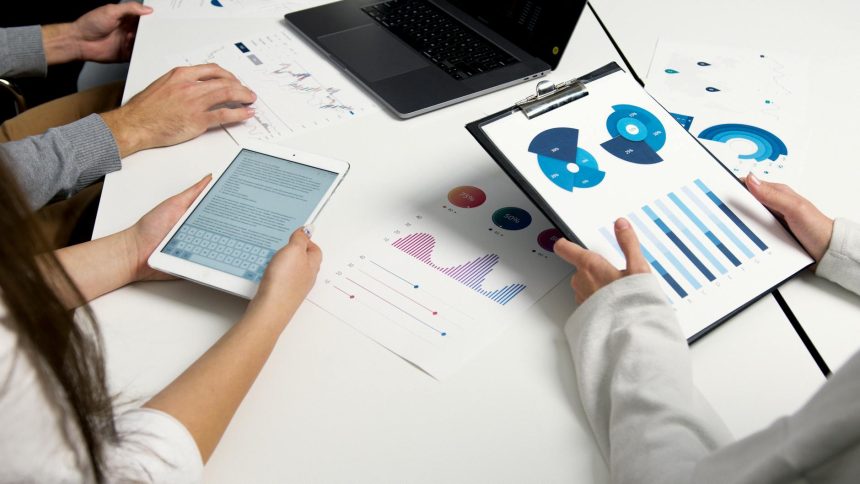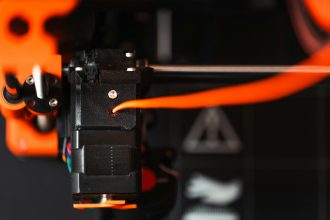AI in Global Trade: How AI Transforms Commerce & Supply Chains
The global marketplace is undergoing a monumental shift, driven by technological innovation. At the forefront of this transformation is artificial intelligence (AI), rapidly reshaping how businesses operate across borders. Understanding the profound impact of AI in global trade is no longer optional; it’s essential for competitive survival and growth.
This article explores the critical ways AI is revolutionizing international commerce, from optimizing complex supply chains to streamlining financial transactions. We delve into how AI empowers businesses to navigate challenges, unlock efficiencies, and seize new opportunities in an increasingly interconnected world.
The Evolving Landscape of Global Trade with AI
Global trade dynamics are more intricate than ever, influenced by geopolitical shifts, fluctuating consumer demands, and environmental considerations. Traditional methods often struggle to keep pace with this complexity. Here, AI emerges as a powerful enabler, offering capabilities that were once the realm of science fiction.
Artificial intelligence provides unprecedented analytical power, allowing businesses to process vast datasets quickly. This capability translates into clearer insights, better forecasting, and more agile decision-making. Consequently, companies can respond proactively to market changes, rather than reactively.
AI in Global Trade: Revolutionizing Supply Chains
Supply chains are the backbone of international commerce, yet they are notoriously vulnerable to disruptions. From manufacturing to last-mile delivery, every step presents potential bottlenecks. AI-driven supply chain transformation offers a robust solution, enhancing resilience and efficiency across the board.
Predictive analytics, powered by AI, can anticipate demand fluctuations, potential logistical delays, and even equipment failures. This foresight allows businesses to optimize inventory levels, plan more efficient routes, and minimize costly delays. Furthermore, AI automates routine tasks, freeing human resources for more strategic initiatives.
Enhancing Efficiency in Logistics and Operations
Logistics, a critical component of global trade, benefits immensely from AI integration. AI algorithms can analyze real-time data on traffic, weather, and port congestion to optimize shipping routes. This not only reduces transit times but also lowers fuel consumption and operational costs.
Warehouse operations also see significant improvements through AI. Robotic process automation (RPA) and AI-powered vision systems streamline sorting, packing, and inventory management. These technologies reduce human error and accelerate processing times, ensuring goods move faster through the supply chain.
- Predictive Maintenance: AI monitors machinery health, predicting failures before they occur, reducing downtime.
- Demand Forecasting: Advanced algorithms analyze historical data and external factors to predict future product demand with higher accuracy.
- Route Optimization: AI dynamically adjusts logistics routes to avoid delays and reduce fuel consumption.
- Inventory Management: AI systems recommend optimal stock levels, preventing overstocking or stockouts.
Transforming International Trade Finance and Payments
The financial aspects of international trade are often complex, involving multiple currencies, regulatory hurdles, and inherent risks. AI is fundamentally changing this landscape, making trade finance and cross-border payments faster, more secure, and more accessible. Fraud detection, in particular, has seen significant advancements.
AI algorithms can quickly detect anomalous patterns in transactions, flagging potential fraudulent activities that human analysts might miss. This proactive approach safeguards financial assets and builds trust within the trading ecosystem. Moreover, AI streamlines compliance checks, accelerating the entire payment process.
Mitigating Risks with AI-Powered Insights
Risk management is paramount in international trade, encompassing everything from credit risk to geopolitical instability. AI provides sophisticated tools for assessing and mitigating these risks. By analyzing vast amounts of data, AI can identify emerging risks and provide actionable insights for decision-makers.
For instance, AI can evaluate the creditworthiness of international partners more accurately by processing diverse data points, including market sentiment and macroeconomic indicators. This comprehensive analysis allows businesses to make informed decisions and minimize financial exposure. The ability to predict market volatility also gives businesses a strategic advantage.
- Enhanced Fraud Detection: AI identifies suspicious patterns in transactions, preventing financial losses.
- Automated Compliance: AI systems quickly verify transactions against international regulations, speeding up processes.
- Credit Risk Assessment: Algorithms analyze multiple data sources to provide accurate credit evaluations for trade partners.
- Currency Fluctuation Prediction: AI models forecast currency movements, aiding in hedging strategies.
Navigating Customs and Compliance with Artificial Intelligence
Customs procedures and international trade compliance are notorious for their complexity and potential for delays. AI offers innovative solutions to simplify these intricate processes. From automated document verification to real-time tariff classification, AI enhances accuracy and speed at borders.
AI-powered systems can review shipping documents, ensuring they meet all regulatory requirements before submission. This significantly reduces the likelihood of errors, which can lead to costly delays and penalties. Furthermore, AI can provide instant access to the latest trade regulations, helping businesses stay compliant across various jurisdictions. For more insights on AI’s role in trade policy, consult resources like the World Trade Organization.
The Future Outlook: Strategic Advantages of AI Adoption
The integration of AI into global trade is not just about efficiency; it’s about building a future-proof business model. Companies that embrace AI gain a significant competitive edge, characterized by greater agility, reduced operational costs, and enhanced customer satisfaction. The continuous evolution of AI promises even more sophisticated applications.
From personalized trade experiences to fully autonomous logistics networks, the potential is immense. Strategic adoption of AI allows businesses to innovate faster, enter new markets more confidently, and adapt to unforeseen challenges with greater resilience. The World Economic Forum offers further perspectives on AI and the future of trade.
In conclusion, artificial intelligence is undeniably a transformative force in international commerce. Its capabilities in optimizing supply chains, securing financial transactions, streamlining compliance, and mitigating risks are revolutionizing every facet of global trade. Businesses that proactively integrate AI into their strategies are poised to thrive in this new era of digital trade.
Ready to harness the power of AI for your global trade operations? Explore its potential to drive unprecedented growth and efficiency today.
Featured image provided by Pexels — photo by Artem Podrez










